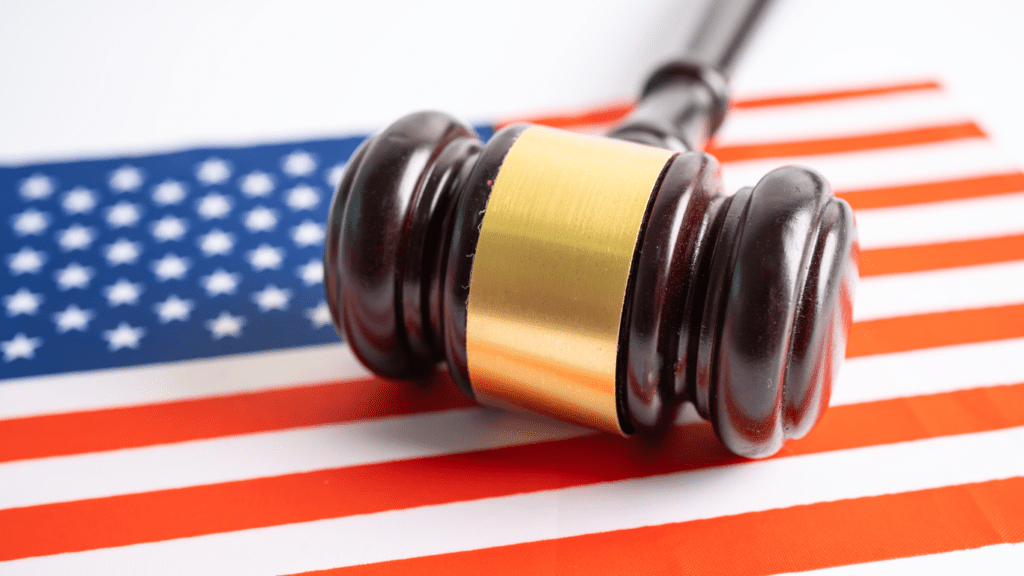Overview of US Gambling Laws
Understanding US gambling laws involves navigating a complex landscape influenced by federal and state regulations. Knowing these laws helps make informed decisions.
Federal Regulations on Gambling
Federal laws govern various forms of gambling, covering lottery, sports betting, and online gambling. The Federal Wire Act of 1961 limits sports betting activities across state lines, aiming to combat illegal gambling operations.
The Professional and Amateur Sports Protection Act (PASPA), though invalidated in 2018, previously restricted sports betting except in certain states.
The Unlawful Internet Gambling Enforcement Act (UIGEA) of 2006 targets online gambling by prohibiting financial transactions related to illegal online gambling.
However, it doesn’t define illegal gambling, leaving the interpretation to individual states. Federal regulations create a baseline, allowing states to establish their specific rules and limitations.
The Role of Individual States
Each state controls its gambling laws within federal guidelines. State laws vary significantly, reflecting local culture and preferences.
Nevada, famous for its vibrant casinos, permits most forms of gambling, making it a popular destination for tourists. Utah, on the other hand, prohibits gambling entirely due to strong religious influences.
States like New Jersey and Delaware have legalized online gambling, while others restrict or ban it entirely. California has a mix of regulations, allowing card rooms and tribal casinos but heavily regulating other forms.
Understanding these nuances ensures compliance and helps identify legal gambling opportunities.
States regularly update their laws to adapt to changing public sentiment and technological advancements, making it essential to stay informed.
Key Differences in State Gambling Laws
Understanding the differences in state gambling laws requires delving into specific regulations. Each state has unique rules, which significantly impact where and how you can gamble.
States With Legal Online Gambling
Several states permit online gambling, creating opportunities for residents to engage in various online betting activities.
- New Jersey: Offers a wide range of legal online gambling options, including poker, casinos, and sports betting. Regulated by the New Jersey Division of Gaming Enforcement, the state has seen a significant boost in tax revenue.
- Pennsylvania: Allows online casinos, poker, and sports betting. The Pennsylvania Gaming Control Board oversees these activities, ensuring player protection and fair play.
- Michigan: Joined the list in January 2021, offering online casinos, poker, and sports betting. The Michigan Gaming Control Board regulates it, aiming for a safer gambling environment.
States With Strict Gambling Restrictions
Other states take a more cautious approach, imposing strict regulations or outright bans on most forms of gambling.
- Utah: Completely bans all forms of gambling. No legal casinos, lotteries, or online gambling are allowed, reflecting the state’s conservative stance.
- Hawaii: Similar to Utah, it prohibits all forms of gambling. This includes casinos, lotteries, and online betting, making it one of the strictest states.
- Alaska: Has limited gambling options. Residents mainly participate in social gambling, while charitable gaming is the primary legal option.
State laws determine the legality and availability of gambling options, reflecting diverse approaches to regulation.
Notable Case Studies

Analyzing specific state approaches to gambling laws illustrates the diverse regulatory landscape in the US.
New Jersey’s Approach to Online Gambling
New Jersey has become a prominent example of progressive online gambling legislation. In 2013, the state legalized online gambling, allowing residents to partake in various forms of internet-based gaming, including poker and casino games.
Licensed operators must partner with existing Atlantic City casinos. This licensing ensures robust regulatory oversight and a connection to established entities.
The New Jersey Division of Gaming Enforcement (NJDGE) oversees the operations. It ensures compliance with state laws, protecting consumers and maintaining fair play standards.
By 2020, the state reported revenue exceeding $970 million from online gambling alone, highlighting the economic potential of regulated online gaming.
Utah’s Complete Ban on Gambling
In stark contrast, Utah enforces one of the strictest anti-gambling stances in the country. Utah’s gambling laws prohibit all forms of gambling, including lotteries, casinos, and online gambling.
State legislation upholds this ban strictly, with no exemptions or regulated forms of gambling permitted.
The legal framework is rooted in the state’s cultural and religious beliefs, aligning with the predominant values of its residents. Law enforcement actively monitors for illegal gambling activities, ensuring adherence to these laws.
Those caught violating Utah’s gambling policies face severe penalties, including hefty fines and possible imprisonment.
These case studies underscore the varying degrees of gambling regulation within the US, influenced by economic interests, cultural values, and historical context.
Gambling Laws and Tourism
State-specific gambling laws significantly influence tourism in the US. These regulations impact local economies and attract international visitors.
Impact on Local Economies
Gambling contributes immensely to local economies. Nevada, with its robust casino industry, generates billions in revenue annually.
According to the American Gaming Association, in 2022, commercial casinos in the US generated $53 billion, with states like Nevada and New Jersey leading in revenue.
Such as:
- laws foster job creation
- stimulate local businesses
- increase tax revenues
Gaming establishments employ thousands, including:
- positions in hospitality
- entertainment
- security
Local businesses, such as restaurants and hotels, benefit from the influx of tourists.
Attracting International Visitors
US gambling destinations appeal to international travelers. Las Vegas, renowned for its casinos, attracts millions of tourists annually.
- The Las Vegas Convention and Visitors Authority reported 42.5 million visitors in 2019.
- States with progressive gambling laws, such as New Jersey, also see significant international interest, particularly in online gambling.
- These destinations promote themselves as entertainment hubs, offering amenities like shows, dining, and shopping.
- Regulations that allow diverse gambling options, such as sports betting and online casinos, make these states more attractive to global tourists seeking multiple entertainment forms.
Future of Gambling in the US
The US gambling environment continues to evolve due to technological advancements and changing societal attitudes. With many states reconsidering their gambling laws, trends suggest significant shifts in the industry’s landscape.
Trends in Legislation Changes
Legislators increasingly favor online gambling and sports betting. Since the Supreme Court’s 2018 decision to overturn PASPA, states have rapidly adopted sports betting regulations.
For instance, in 2021, over 20 states, including New Jersey, Pennsylvania, and Michigan, offered legalized sports betting. Bills supporting online casinos have also gained traction.
Another noticeable trend is the growing acceptance of daily fantasy sports (DFS). States like New York and California have introduced specific regulations to distinguish DFS from traditional sports betting.
This legislative shift showcases the states’ intention to modernize their gambling frameworks.
Predictions for State Law Adaptations
I foresee more states embracing online gambling and sports betting to boost tax revenues and stimulate economic growth.
Should legislative resistance wane, states like Texas and California might join the ranks of those with legalized sports betting within the next five years.
Consider the integration of cryptocurrencies in gambling platforms. As digital currencies gain mainstream acceptance, states may adapt their laws to include regulations for crypto gambling.
Wyoming’s recent legislation permitting cryptocurrency transactions in gambling sets a precedent.
Additionally, states with restrictive laws, such as Utah, might face increasing pressure as neighboring states liberalize their gambling policies.
These dynamics could lead to shifts in state legislatures’ strategies, aiming to remain competitive in attracting tourism and investment.
I anticipate a more unified but diverse gambling legal landscape across the US, featuring a combination of online, physical, and technologically integrated gambling options.
The journey toward this future hinges on progressive legislation and adaptation to emerging trends.


